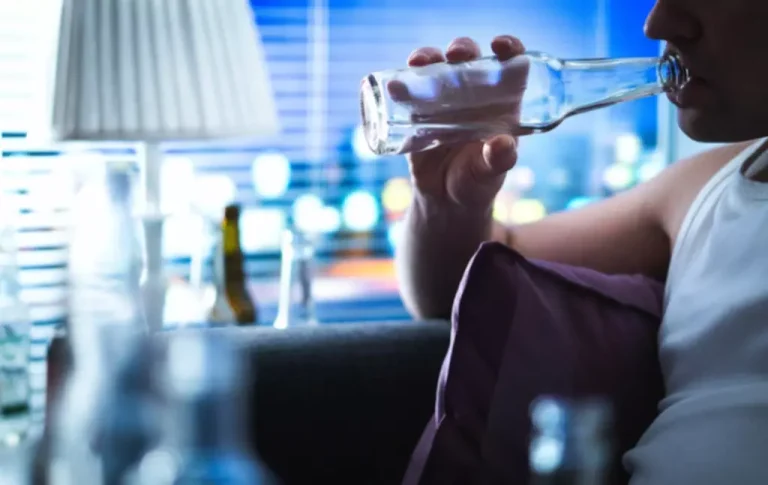
Continuing to drink when already feeling drunk can increase a person’s risk of complications. The consumption of alcohol directly influences specific processes of the brain, the command center of the body, which results in feeling inebriated. Since alcohol can increase the body’s production of dopamine and serotonin, two of the body’s ‘happy hormones’, it can temporarily make us feel less anxious. The human brain uses a number of chemicals – known as neurotransmitters – to carry messages.
- What alcohol does, though, is depress the body’s central nervous system – the system that lets our brain tell our body what to do.
- However, when drinking alone, the euphoria is more muted, or absent altogether.
- As intoxication progresses, individuals may experience nausea and dizziness.
Unveiling the differences between disordered eating vs. eating disorders – understand, identify, and support.
It’s important to monitor anyone drug addiction who’s extremely drunk and ensure they’re safe while they rest. Many people believe that drinking coffee or water will help them sober up quickly. While staying hydrated is important, it won’t speed up the process of alcohol leaving your system.

Discover the power of inpatient treatment: essential for mental health care and holistic recovery.
Ethanol — also referred to as alcohol, ethyl alcohol, or grain alcohol — is the primary ingredient in alcoholic bevvies. Adrienne Santos-Longhurst is a freelance writer and author who has written extensively on all things health and lifestyle for more than a decade. Certain medical conditions, especially those that affect kidney or liver function, can affect how quickly alcohol is metabolized and how it affects you. Here’s a look at all the variables that affect how long drunkenness lasts.

Psychological effects

Initially, many people report feeling euphoric, happy, and more social. This is because alcohol stimulates the release of neurotransmitters like dopamine and serotonin, which contribute to these feelings. Being drunk is a spectrum, ranging from feeling tipsy and sociable to experiencing severe physical and mental impairment. Understanding the stages of drunkenness and how alcohol affects the body can help you make safer decisions when drinking.
Additionally, alternate alcoholic beverages with water to stay hydrated and reduce the amount of alcohol you consume over time. However, as you continue to drink, these effects intensify and can lead to more dangerous outcomes. Your liver can only metabolize a certain amount of alcohol per hour, which means excess alcohol circulates in your blood, causing further impairment. The initial euphoric effects of alcohol are a result of dopamine being released from the reward center in the brain.
Increased Urination & Dehydration
This contextual influence underscores the importance of considering the broader social and environmental factors when examining alcohol’s effects on happiness. Several factors can influence the levels of intoxication one experiences after consuming alcohol. Understanding these factors is important in recognizing and managing one’s alcohol does being drunk feel good consumption responsibly. The key factors that influence intoxication levels include alcohol tolerance, body weight and metabolism, and the rate of alcohol consumption. It’s important to note that the signs and symptoms mentioned above are general observations and may vary from person to person.
- Heavy drinkers can function with higher amounts of alcohol in their bodies than those who don’t drink as often, but this doesn’t mean they’re not drunk.
- A woman will feel tipsy after consuming 1 to 2 alcoholic drinks in an hour.
- You may think that you’re sober once you’re able to walk in a straight line, but that doesn’t mean that you aren’t drunk.
- It simply means that individuals with higher tolerance may require larger quantities of alcohol to experience the same effects.
- However if you drink more than your liver can process, you start to get drunk.
- If someone is showing symptoms of severe intoxication—such as slurred speech, trouble walking, or vomiting—it’s time to intervene and help them stop drinking.

While a couple of drinks on a Saturday night with friends may boost your mood, there is a narrow therapeutic window. Drinking too much in one sitting or drinking too frequently can quickly convert the benefits of alcohol into a detriment. Daily use, especially more than two drinks per day, can lead to, or exacerbate, depression, anxiety, insomnia, and anger. As mood worsens under the effects of consistent alcohol use, regular drinkers no longer look towards alcohol for euphoria, but rather to relieve their suffering. This creates a downward spiral that doesn’t stop until the alcohol does.
- Some common signs include an inability to control alcohol intake, experiencing withdrawal symptoms when not drinking, and neglecting responsibilities due to alcohol use.
- Understanding the influence of social settings on drinking behavior is crucial for promoting healthier drinking habits.
- This is because when you eat the combined alcohol and food stays longer in the stomach.
- For most people, a single drink — for example, 1.5 ounces (oz) of hard liquor, 12 oz of beer, or 5 oz of wine — will elevate blood alcohol by 0.06 or 0.07 per drink.
This signal reinforces the behavior that led to the reward, increasing the likelihood that we’ll repeat it in the future. One of the most frequently asked questions is whether alcohol increases dopamine or serotonin. The answer is not straightforward, as alcohol affects both of these crucial neurotransmitters, along with others such as GABA (gamma-aminobutyric acid) and endorphins. It helps to have food with your drinks, as this can slow down the absorption of alcohol.
What are the stages of being drunk?
These post-alcohol mood swings and depressive episodes can create a vicious cycle. Some individuals may be tempted to drink again to alleviate these negative feelings, perpetuating a pattern of alcohol use that can be detrimental to long-term mental health and well-being. Understanding the interplay between serotonin, dopamine, and oxytocin is crucial for comprehending the brain’s happiness trio. While alcohol primarily affects serotonin and dopamine, its indirect effects on social behavior can also influence oxytocin release, further complicating the neurochemical picture. Understanding the science behind alcohol’s impact on our brain chemistry is crucial for making informed decisions about our drinking habits and overall well-being.